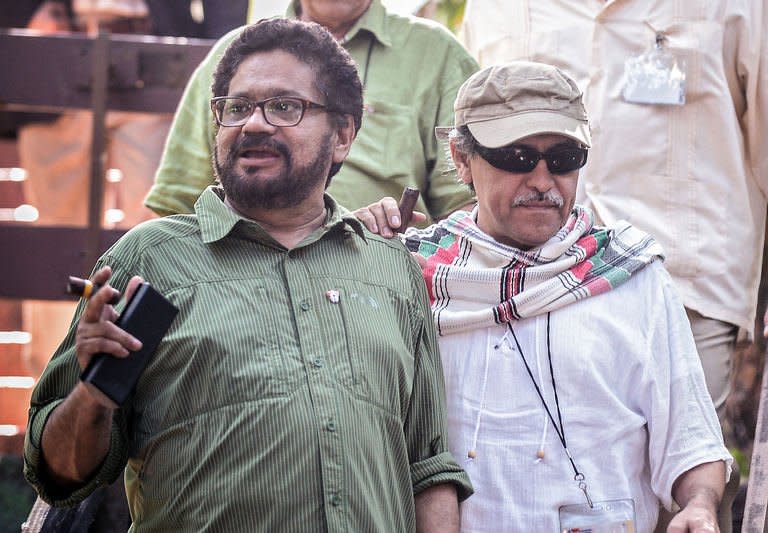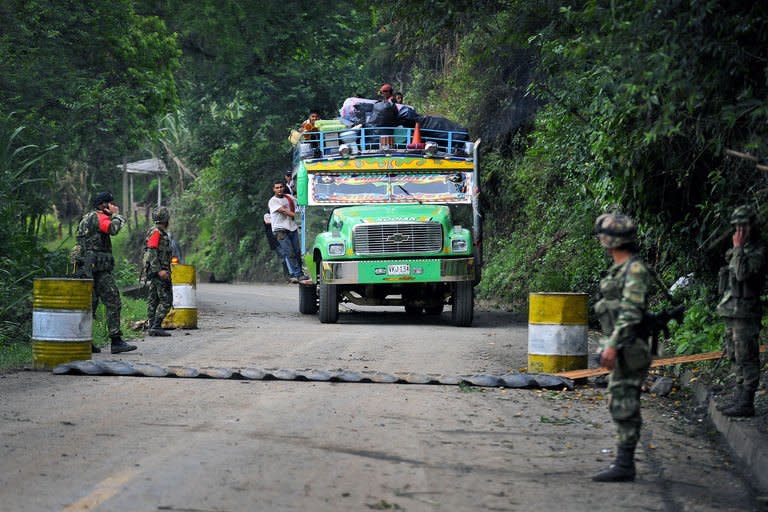Colombia, FARC rebels report progress in peace talks
Colombia and leftist FARC rebels reported progress on the key issue of land redistribution as they ended another round of peace talks aimed at ending Latin America's oldest insurgency. The Revolutionary Armed Forces of Colombia (FARC) emerged in the 1960s in response to a huge gap in wealth between peasants and ultra-wealthy owners of huge haciendas, or estates, in Colombia. Land redistribution is one of the most critical items on the agenda of peace talks that began here in November, a bid to end a conflict that has ground on for nearly 50 years. The rebels Saturday said the government had a duty to "settle its historic debt" by turning over millions of hectares to peasants -- from abandoned or under-producing farms, land seized from drug traffickers and other sources. On Sunday, both sides sounded upbeat as they reported progress, but they spoke in generalities and did not fully explain what they meant by progress. The government side read out a statement and did not take questions from reporters. Rebel delegation chief Ivan Marquez said "we have without a doubt advanced, and find that the biggest achievement of these days of negotiation is to agree on the goal of giving gradual access to land to the greatest possible number of Colombians." Earlier, the tone was less cordial as they two sides argued over whether two police officers and a soldier captured January 25 by the rebels are hostages or prisoners of war. The government delegation referred to them as kidnapping victims, and urged the FARC to make good on its stated willingness to release them. The rebels called them prisoners of war. The FARC has said it will release them to the International Committee of the Red Cross and a Colombian NGO. Ricardo Tellez, considered as tantamount to foreign minister for the FARC, said the release of the three men is being prepared.



